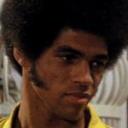|
|
| |
|
 … On this day, I see clearly, everything has come to life.
… On this day, I see clearly, everything has come to life.
Note: This blog expresses only the opinions of the blog owner,
and does not represent the opinion of any organization or blog
that is associated with 聚言莊﹕The House Where Words Gather.
|
|
May 9th, 2010
A special Mother’s Day edition of Old Cake Cantopop today as the blog joins in on the celebration of mothers and motherhood. Try to remember the sentiments of the day if you ever find yourself in a tiff with your mother. Try thinking: “This woman gave me life so … ultimately, she has no one to blame but herself for this predicament!” 
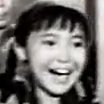 Performed originally by Josephine Siao Fong-Fong in the 1960 release NOBODY’S CHILD (苦兒流浪記; trans. TALES OF THE WANDERING ORPHAN), the song 《媽媽好》 (Mom Is Great) has become a lullaby/nursery rhyme in Chinese culture. It’s been covered by the likes of Teresa Teng and versions of the song have even been done in Japanese and Vietnamese. Since 1960, various incarnations of the song have appeared numerous times in many films and television projects. If you saw the 2004 film PAPA LOVES YOU, you may recall the song being played in the background when rambunctious schoolgirl Ellen (Charlene Choi) thinks about the sacrifices her father (Tony Leung Ka-Fai) has made for her. Performed originally by Josephine Siao Fong-Fong in the 1960 release NOBODY’S CHILD (苦兒流浪記; trans. TALES OF THE WANDERING ORPHAN), the song 《媽媽好》 (Mom Is Great) has become a lullaby/nursery rhyme in Chinese culture. It’s been covered by the likes of Teresa Teng and versions of the song have even been done in Japanese and Vietnamese. Since 1960, various incarnations of the song have appeared numerous times in many films and television projects. If you saw the 2004 film PAPA LOVES YOU, you may recall the song being played in the background when rambunctious schoolgirl Ellen (Charlene Choi) thinks about the sacrifices her father (Tony Leung Ka-Fai) has made for her.
What follows are my rudimentary translation of the lyrics for the song, a link to the Hong Kong Film Archive page for NOBODY’S CHILD, a YouTube clip of Josephine Siao performing the song in the film and other related links.
Happy Mother’s Day everybody!
… and, yes, I realize the song isn’t sung in Cantonese so it isn’t exactly “Cantopop”. Just get in the spirit of the holiday - OK? 
RELATED LINKS:
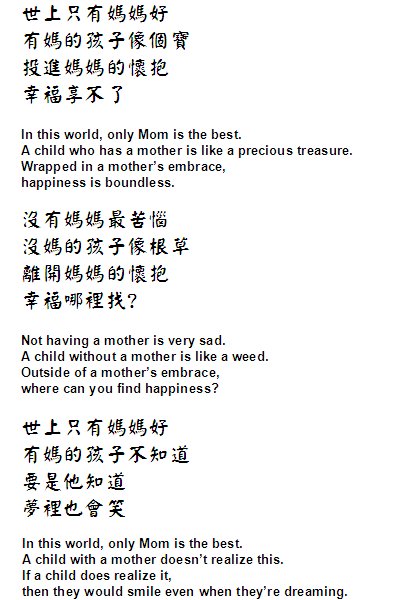
Posted in Old Cake Cantopop | 2 Comments »
April 15th, 2010
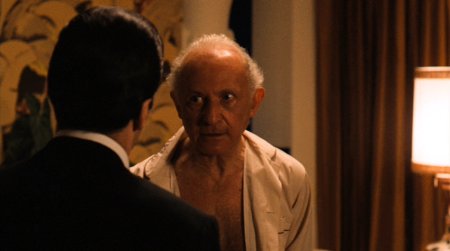
While watching the Ronald Cheng - Charlene Choi controversy unfurl late last month, it was hard not to think of the great speech by the Hyman Roth character in THE GODFATHER, PART II. Lamenting the death of his partner in organized crime, Moe Green, Roth said:
Someone put a bullet through his eye. No one knows who gave the order. When I heard it, I wasn’t angry. I knew Moe, I knew he was headstrong, talking loud, saying stupid things. So when he turned up dead, I let it go.
And I said to myself, this is the business we’ve chosen. I didn’t ask who gave the order.
The matters of a marriage, for the most part, should be dealt with privately by the couple. If some sort of abuse is taking place, then the authorities, quite rightly, should intervene. But, for the most part, what goes on between two people in a marriage should stay between the two people involved. It’s a part of common human decency to respect the privacy of a married couple. After all, some form of the Golden Rule (”do onto others as you would have done onto you”) exists in most of the World’s cultures. Among the circle of Chinese people that I know, uncharitable things are often said of people who gossip about the marriages of the butcher, the baker or the candlestick maker. We’ve all seen those types of characters in TVB dramas. They’re never played by the beautiful TVB fa daans. They’re invariably played by lower profile supporting actresses. Why, then, was the secret marriage of Ronald Cheng and Charlene Choi such a hot topic?
Simple, because of the business they’ve chosen. The business, according to multiple Chinese media reports, that made Charlene Choi millions last year in accumulated fees, royalties and endorsements, provided her with enough money to buy three properties that generate rental income and will allow her and Cheng to avoid a nasty dispute over alimony. “I can afford my own lifestyle and he can afford his,” Choi declared on March 29th at an event promoting her Twins reunion concerts.
While wealth and prosperity does certainly soften the blow of having your private life dragged through the mud, the public intrusion into the marriage of Charlene Choi and Ronald Cheng feels worse than the public intrusion on Sexy Photos Gate protagonists Gillian Chung and Edison Chen. At first blush, it seems an insane notion. After all, Ah Gil and EDC had their most private of parts laid bare. The difference, however, is that in one case a private secret was revealed while in the other a lie was exposed.
Consider it this way: Ah Bing has a drug problem. He’s still able to function but he’s addicted to drugs and it’s affecting his life. He’s trying to shed his addiction but, because he wants to keep his job, he keeps his problem a secret. Some people suspect that he’s an addict and have started to question him. He denies the speculation because he wants to keep making a living.
Ah Mou also has a drug problem. He’s still able to function but he’s addicted to drugs and it’s affecting his life. He’s trying to shed his addiction but, because he wants to keep his job, he keeps his problem a secret. Only thing is, he’s an anti-drug advocate who makes his living decrying drugs. One day, a photo of him doing a line of cocaine is published in the newspaper and his career is ruined.

It’s a fine distinction but it’s why it’s easier to feel sorry for Charlene Choi than it is for Gillian Chung. Ah Sa didn’t exploit her marital status for professional gain. Her denials were about keeping her private life private. She didn’t do it to sell more tickets and albums. She didn’t do it to get more endorsement deals. For at least two years, it had been an open secret that she and Ronald Cheng were together in some form. It probably wasn’t a shock to most fans when Apple Daily revealed their marriage certificate.
On the other hand, in the face of the Easy Finder scandal, Ah Gil protested too much about how the pictures of her bare shoulder shattered her fragile, virginal, clean-cut sensibilities. The peephole pictures were indeed despicable but, considering what they showed, it was not a proportional response. As a result, when the Sexy Photos Gate images surfaced, most of her fans felt betrayed because it showed that she exploited the Easy Finder scandal for professional gain.
In Charlene Choi’s case, she was trying to keep the door closed on her private life. Gillian Chung opened the door to hers by overplaying her reaction to Easy Finder. The situations that the two Twins members found themselves in were caused by gross invasions of privacy but the fine line between a secret and a lie is why Choi will likely just keep moving on with her career while Chung had to spend the last two years in exile.
Public intrusion into the private lives of celebrities is the natural byproduct of fame. Celebrities get paid because they have created an interest in themselves so they have to live with it when that interest manifests itself in distasteful ways. Vicki Zhao probably isn’t enjoying the speculation about her baby and her Baby Daddy but the interest in her and her private life is part of why she’s in projects like MULAN and 14 BLADES. The interest is why she’s able to do endorsements for clothing lines, shampoos and cell phones.
Most of the time, the attention is harmless and does not amount to more than an annoyance. Most of the time, people can tell the difference between a private secret and a lie so no real damage is done unless a celebrity is caught in a lie. People can respect secrets. 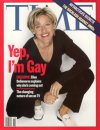 No one held it against Leslie Cheung for not revealing his sexual orientation with a “Yep I’m Gay” cover on Ming Pao Weekly. No one held it against Anita Mui for keeping her fight against cancer private until three months before her death. No one held it against Leslie Cheung for not revealing his sexual orientation with a “Yep I’m Gay” cover on Ming Pao Weekly. No one held it against Anita Mui for keeping her fight against cancer private until three months before her death.
People, however, do not tolerate lies. Jackie Chan’s popularity in Hong Kong has never recovered from the Dragon Seed scandal of 1999. His “good guy, say your prayers, drink your milk, take your vitamins” image was dealt a serious blow by news of his affair with Elaine Ng. Chan has five of the top 20 highest-grossing Hong Kong films of all-time yet, since making HK$27.5 million with GORGEOUS (his last pre-Dragon Seed release), he hasn’t broken the HK$25 million mark. In fact, his latest film, LITTLE BIG SOLDIER, made a desultory HK$1.8 million.
In the end, because Charlene Choi and Ronald Cheng were just trying to keep their marriage private, it’s hard to imagine their careers being damaged in the long-term. This is why this particular intrusion into the private lives of celebrities feels more repulsive than other instances. It feels like Choi and Cheng were forced to hold a press event announcing the dissolution of their marriage for mere weekend entertainment. Sadly, it seems most people didn’t recognize that a tragedy was playing out before their eyes. Two people who used to be in love were breaking up. Two people whose lives had to have been diminished because they felt like they had to hide that love. Tragic novels and plays could be written from these circumstances. Instead, it was consumed as fodder for the entertainment news cycle.
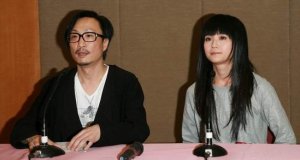
It’s a sad situation and you can point the finger at multiple culprits: the over-heated HK media, the celebrity-obsessed culture, the way EEG markets its talent and the general nature of the HK entertainment star-system. Ultimately, though, Choi and Cheng have no one to blame but themselves. This is, after all, the business they’ve chosen.
Image credits: Paramount Pictures (THE GODFATHER, PART II screen grab), Time Magazine (Ellen Degeneres cover), Sina.com (Twins, Ronald Cheng & Charlene Choi)
Posted in Gillian Chung Yan-Tung, Charlene Choi Cheuk-Yin | 3 Comments »
February 14th, 2010
A little business to conduct before we get to the holiday festivities: My 12-year “artistes” contract with the Kozo Entertainment Group obligates me to remind you that voting is underway for the “Top Hong Kong Films of the 1990s”. Go here for details.
With Lunar New Year and Valentine’s Day falling on the same day, it’s the perfect time to release the Kozo Entertainment Group’s first feature film. It’s a holiday release called LOVE FOR HIRE. I got the idea for the movie after reading news articles about demographically-challenged Mainland males “renting” girlfriends to bring back home for Lunar New Year gatherings. Being a fan of LAW & ORDER for close to twenty years, ripping a story from the headlines came naturally. After running it up the flagpole to my superiors at the KEG, we got some funding from The Feinstein Company and the China Pajama-Producers Co-operative. Consider this our “red packet”/valentine to you …
* * * * *
LOVE FOR HIRE:
A romantic comedy/drama about the lives and loves of people who work at an agency that provides fake girlfriends to guys who need someone on their arm for a social occasion. The movie has two main plots:

MAIN PLOT A: Normal but shy guy hires a girl to practice social situations with (asking her out, going on dates, etc.) because he’s in love with a hot girl in his office.
Normal/shy Guy: Jaycee Chan (Fong Cho-Ming)
Girl For Hire: Charlene Choi Cheuk-Yin
Hot Office Girl: Chrissie Chau Sau-Na
Due to his shyness, Jaycee has never dated a girl before so he wants to work out all the kinks of dating with Charlene before asking Chrissie out. Naturally, over the course of a few practice dates, Jaycee falls in love with Charlene but, because she’s only doing this to make a few dollars for a plane ticket to see her boyfriend who’s studying in Australia, he doesn’t want to admit his love — even though it’s clear she loves him back. He ends up going through with asking Chrissie out.
On his date with Chrissie, Jaycee realizes that he has to profess his love for Charlene so he races to the airport to stop her from getting on the plane to see her boyfriend for the Lunar New Year holiday. (Thus satisfying the romantic movie commandment of always having a scene where one of the main characters is racing somewhere to declare their love for someone.)
MAIN PLOT B: Widower needs to hire a fake girlfriend because his parents are flying in from Canada to visit him and his cute kid for the Lunar New Year holiday.
Widower: Andy Lau Tak-Wah
Agency Owner: Michelle Reis
As Andy’s wife has been dead for four years, his parents have been on his back to get a new woman in his life and the life of their grandchild. He wants to get them off of his back so he goes to the agency to hire a woman for a Lunar New Year “performance”. He has a specific type of woman in mind so he asks to meet directly with the agency owner to pick out the right girl to play the part.
Andy and the agency owner end up meeting several times because they can’t agree on the right girl for the job. During these meetings, Andy begins to admire Michelle for her work ethic and professionalism while Michelle begins to admire Andy for his dedication to his kid, his parents and, most touchingly, his late wife (ie. I’m still in love with her, I’m not ready to find another woman).
Since Michelle knows exactly what Andy is looking for, she decides to take the job herself and, during their “show” for Andy’s parents, Andy and Michelle end up falling in love.
Besides the two main plots, the film also has three mini-plots that fill out the movie:
MINI-PLOT A: The Assistants
Agency Owner’s Assistant: Stephy Tang Lai-Yan
Tycoon’s Assistant: Ronald Cheng Chung-Gei
Obnoxious Tycoon: Jim Chim Sui-Man
Stephy has been working with Ronald because Ronald’s boss (Jim Chim) is an obnoxious jerk of a tycoon who has been hiring arm candy to get photographed with in the tabloids. As the tycoon has been doing this for months, Stephy and Ronald have been talking to each other over the phone for a while. Through casual bits of conversation between making arrangements for the tycoon, Ronald starts to wonder what it’d be like to date Stephy while Stephy begins to imagine what it would be like to have Ronald as a boyfriend. Obviously, there’s mutual interest but, since they just have a professional phone relationship, neither has acted on it. One day, they happen to be in the same Starbucks and when they hear each other order, they realize who the other is and it’s the beginning of a beautiful relationship.
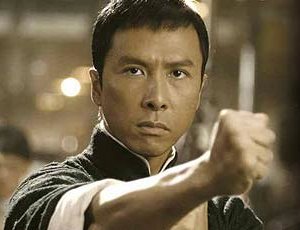
MINI-PLOT B: Husbands and Wives
Husband: Eric Kot Man-Fai
Wife: Miriam Yeung Chin-Wah
Businessman: Donnie Yen (looking to show his skillz in a non-action role)
Businessman’s wife: Lynn Xiong (because she’s Mrs. Ip Man)
A businessman (Donnie Yen) needs to hire a companion to sit in with him for business meetings. He wants to avoid all-night negotiation sessions that are actually just excuses for the other business guys to do heavy drinking. So, he hires a “wife” (Miriam Yeung) as an excuse to get business done quickly or to bail out of booze-soaked all-nighters. Sometimes Miriam goes with Donnie to the meetings, sometimes she calls on the phone to interrupt, sometimes she shows up to interrupt.
Donnie has been working with Miriam for months and everything is strictly platonic. However, Miriam’s husband (Eric Kot) is jealous that she’s spending all this time with Donnie. Things come to a head when Donnie invites Miriam over to his flat for Lunar New Year dinner. Eric is blind with jealousy and goes to the dinner with a chip on his shoulder. When they arrive at Donnie’s place, both Miriam and Eric are surprised to find that Donnie has a wife and two young daughters. When Donnie’s wife (Lynn Xiong), thanks Miriam for helping Donnie come home at night to be with his kids, Eric realizes the foolishness of his jealousy.
MINI-PLOT C: The Ex-Con
The Ex-Con: Nick Cheung Ka-Fai
The “Mainland” Girl: Vicki Zhao Wei
A guy (Nick Cheung) hires a “Mainland” girlfriend to bring home to his parents for Lunar New Year. He’s been telling his parents that he’s been away “on business” in the Mainland for the past three years but, in actually, he’s been rotting in jail after being framed by a former friend for a crime he did not commit.
Vicki Zhao misses her own family back in China so she feels kind of sad to see this sham of a Lunar New Year gathering. Nick Cheung feels the emptiness as well. After the dinner, Vicki Zhao tells Nick Cheung to be straight with his parents, she points out that they may be more understanding than Nick Cheung thinks. This story ends with Nick Cheung coming clean and truly reconciling with his family.
* * * * *
I think that’s enough plot for a 90 to 120 minute movie. What do you think? Even with stiff competition from 72 TENANTS OF PROSPERITY and ALL’S WELL THAT END’S WELL 2010, this makes HK$10 million - no?
Now, as the late-Michael Jackson said repeatedly in THIS IS IT, I wrote this story out of “love” for the readers who have been reading my nonsense over the years. As I said earlier, it was my “red packet”/valentine to the readers. It’ll be upsetting if some knock off, possibly called LOVE FOR RENT, pops up in the Lunar New Year 2011 movie slate. It’ll be especially upsetting if the knock off includes stories about a shy guy, a widower, a jealous husband, an obnoxious tycoon, assistants and an ex-con. Not only will it upset me, it’ll upset the mighty KEG, the Feinstein Company and the China Pajama-Producers Co-operative. Most people know better than to upset the CPC - especially in China. 
To avoid all the nastiness, get in touch with me. My demands may be as simple as a cameo role as one of the business guys at a Donnie Yen business meeting or the barista who hands Stephy Tang her latte at Starbucks.
All right … time for the traditional House Where Words Gather Lunar New Year greeting. As you can tell from years past (Ox, Rat), my wishes for all of you are less grandiose than unimaginable wealth. Sticking with that tradition, I’m going to channel Dan Rather and Al Pacino by wishing you:
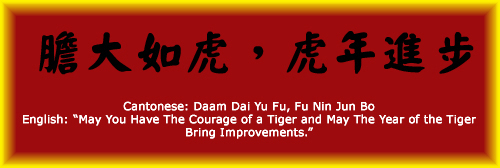
I’m hoping that the Year of the Tiger gives you courage to make improvements in your life. May you find the courage to inch your way towards greater happiness be it finding the guts to ask that cute girl out, the courage to find a better job or the cojones to change an unhappy circumstance in your life.
And, as always, 身體健康! Happy Year of the Tiger!
Posted in Andy Lau Tak-Wah, Nick Cheung Ka-Fai, Stephy Tang Lai-Yan, Vicki Zhao Wei, Donnie Yen Chi-Tan, Charlene Choi Cheuk-Yin, Michelle Reis, Miriam Yeung Chin-Wah, The Life and Opinion of the Webmaster Sanney | 8 Comments »
February 9th, 2010
Before continuing with the look back at the movies of the 2000s, a few thoughts on some news tidbits that have emerged lately:
1. Hong Kong Film Awards Nominations
I said it the day after last year’s awards and I still believe it to be true in spite of the buzz for Wang Xueqi’s work in BODYGUARDS AND ASSASSINS: Simon Yam will win a Best Acting award at the HKFAs this year. It may be a “lifetime achievement” type deal but I think he’s due. He got two nominations in the Best Actor category this year for NIGHT AND FOG and for ECHOES OF THE RAINBOW so here’s hoping …
More thoughts on the HKFA nominations:
- Nice to see Zhang Jingchu get nominated for her solid performance in the grim tale that was NIGHT AND FOG.
- As a fan of schlocky HK comedies of the 1980s and early-1980s, it’s great to see Stanley Fung Shui-Fan get a Supporting Actor nomination for ACCIDENT.
- Biggest snub: Why no Supporting Actor love for Michael “Stone” Wong’s work in OVERHEARD? He made that movie 25% better with his channeling of Stallone’s Rocky Balboa Italian twang in his introductory scene and his cheese-tastic delivery of “I got my own car!” at the end. 
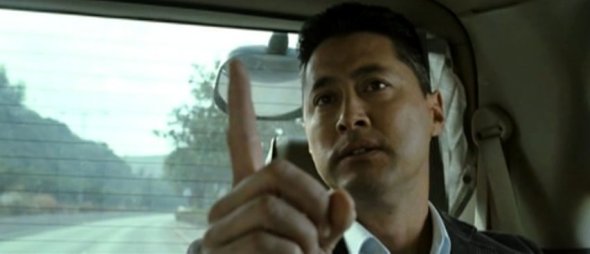
2. 2010: The Year of EDC
This is probably only amusing to me because I have the mind of a randy teenager but I couldn’t help but chuckle when I read the following on Edison Chen’s blog:
2010 promises to be a big year for ya boi EDC
i am going to be coming back HARDER than ever
Talk about unintentional comedy. The capper is that he capitalized “harder”. Does anyone NOT think of those infamous photos after reading that?
3. Edison Chen: “Why was I the bad guy?”
In an interview in the Chinese version of GQ, Edison Chen said that he still doesn’t understand why he was the bad guy in the Sexy Photos Gate scandal. He said: “… was I really a bad person? I wasn’t. People just needed a scapegoat”.
He’s right. He was a victim of a crime. However, he presented himself as a hip-hop, bad-boy type which plays well to his target demographic but not so well to the broader, more conservative, mainstream Chinese audience. So it’s not surprising at all that the general public turned against him. Put it this way, it’s wrong to hit someone in the head with a steel chair but people cheer anyway when a heel character in pro-wrestling gets nailed with one because it happened to somebody who presented himself as a “bad guy”.
It’ll be interesting to see if 2010 will be remembered for a Chen resurgence or if it ends up being more like the Summer of George.
4. Gilllian Chung’s comeback continues
Gillian Chung continues on the comeback trail with an EP, a movie and a Mainland television series coming down the pipe. Yet, it feels like she’s still fighting border skirmishes rather than making any serious assault on the capital. Sorry, THE FOUNDING OF A REPUBLIC remains on the brain. An EP isn’t exactly the same as a full album and a concert series. The movie isn’t exactly a high-profile project slated for a big holiday release and the Mainland television series is a Mainland television series.
When you read her interviews, it’s clear that the comeback narrative her handlers at EEG have settled upon is “more mature, tough, resilient, plucky girl who is holding her head up high and refusing to let the scandal keep her down”. It’s puzzling, then, that they are allowing her to hang on to that “naïve and innocent” schtick. In articles that popped up last month about her new movie with William Chan Wai-Ting, she talks about being “embarrassed” because she had to do a kissing scene with Chan. Is that the kind of talk you hear from tough, resilient girls?
Trying to do “tough and resilient” while hanging on to “cute and innocent” won’t work. If Ah Gil wants substantial success on the comeback trail, she’s going to have to go full-bore on “tough and resilient” and drop the innocent act. Besides, the “cute and innocent” road is still littered with the skeletons of Sexy Photos Gate like the Highway of Death was littered with the carnage of the First Gulf War. All she’s doing when she plays “cute and innocent” is reminding people why she is on the comeback trail in the first place.
Now, fans of Ah Gil are probably thinking: “What are you talking about? EEG is re-uniting her with Charlene Choi and Twins have a concert series and a new album coming out. Isn’t that an indication that EEG thinks the comeback is going strong?”
EEG may, in fact, feel that way but I believe the re-unification of Twins is more about seeing if there’s any milk left in that cash cow and less about restored faith in Gillian Chung’s star power. I think EEG is re-uniting Twins in spite of Gillian Chung’s situation rather than because of it. It would, after all, be nutty to celebrate the 10-year anniversary of Twins in their 11th year. I’d wager EEG is looking at a boost in Ah Gil’s profile as a possible collateral benefit of the Twins reunion rather than as the main impetus for it.
5. Jackie Chan in THE SPY NEXT DOOR
I was all ready to beat my chest in mourning for Jackie Chan’s career after reviews came out uniformly crushing THE SPY NEXT DOOR (it currently sits at 8% on Rotten Tomatoes). Then, a week later, The Rock came out with THE TOOTH FAIRY and it occurred to me that the villain in this story shouldn’t be Jackie Chan for cashing in and taking the paycheque. Only a naïve and innocent fool would refuse to sell a tiny fraction of their dignity for a multi-million dollar payday. The culprits are movie studios that have failed to realize that it’s been twenty years since KINDERGARTEN COP made US$91.4 million and that it did well because it was more a “cops and robbers” film than a kids’ movie.
Here’s hoping we don’t see Bruce Willis in MY GRANDFATHER IS A HERO or Jason Statham in a remake of MR. NANNY.
6. Skynet/Cylons one step closer to taking over humanity
With the unveiling of a life-sized sex robot named Roxxy at the Adult Entertainment Expo in Las Vegas in January, can the Cyberdyne Systems Model 101 or the Cylon Centurion be that far away?
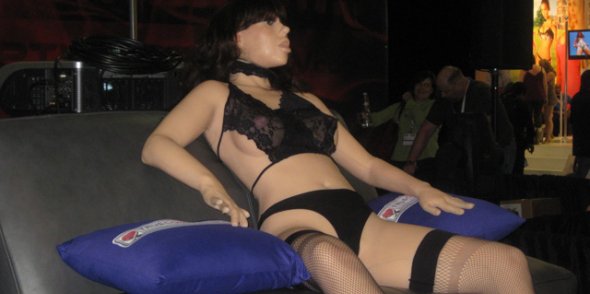
RANDOM NONSENSE:
After seeing Simon Yam’s performances in ELECTION and NIGHT AND FOG, I think the HK Movie Gods should decree that if you want to show a character is a bad guy, just show him fishing. After what Yam’s characters did in those two movies, “Fishing = Evil” is now the equivalent of Blofeld stroking a white cat in Bond movies, the Snidely Whiplash moustache and Spock with a goatee in “Mirror, Mirror”. If perpetual movie good guy Jackie Chan ever has occasion to play a villain, all the director has to do is show a goateed Big Brother fishing while playing with a white cat.
Enough ado, let’s get on to the without further … my list of the “Best Films of the 2000s”.
Previously: Three Views On Chinese Movies In The 2000s: Part I
6. RIDING THE TIGER
Writer/director Herman Yau Lai-To brings his deft, low-key touch to the high octane Sexy Photos Gate scandal in this “ripped from the headlines” film. By eschewing the sex part of the scandal and focusing on the fame part, Yau offers a contemplative look at the nature of celebrity and how it really is like “riding a tiger into battle”. It’s great when the tiger is with you and you’re able to easily do what you want on the battlefield. It’s not so good when the tiger turns against you and you have no control over what happens.
OK, OK that film never happened. I just wanted to throw some appreciation towards Herman Yau. While he doesn’t blow you away with his films like Wong Kar-Wai or Johnnie To, he does offer up solid work and is, in many ways, the “quintessential” Hong Kong director. He makes movies, like TRUE WOMAN FOR SALE, that tell Hong Kong stories. He also works in genres that are entirely “of Hong Kong”. Movies like GONG TAU and SPLIT SECOND MURDERS are unique to the HK movie industry, they can’t be made anywhere else.
Yau started off the 2000s strong with the Buddy Film Creative Workshop films KILLING END and NIGHTMARES IN PRECINCT 7. He had a bit of a lull in the middle of the decade with ASTONISHING and DATING DEATH but he bounced back with a solid run that began with ON THE EDGE. If you’re not familiar with the work of Herman Yau, get yourself to the local Chinese video store and pick up a few of his films.
5. KUNG FU HUSTLE
In the 2000s, Stephen Chow made three of the top-10 grossing HK movies of all-time: KUNG FU HUSTLE (HK$61.2 million currently number one), SHAOLIN SOCCER (HK$60.7 million, currently number two) and CJ7 (HK$51.4 million, currently number seven). So, you have to figure that one of Chow’s films has to be on the list. Sitting at number one and number two, it’s basically a coin flip between KUNG FU HUSTLE and SHAOLIN SOCCER. Like any good comrade — just checking if you’re reading Mainland censors — I side with the people and KUNG FU HUSTLE.
While SHAOLIN SOCCER had the bigger laughs and more significance as a milestone of Stephen Chow’s career, KUNG FU HUSTLE is the more accomplished film because it had a higher degree of difficulty. SHAOLIN SOCCER could hang its comedy bits on the backbone of a conventional “underdog sports team” plotline. KUNG FU HUSTLE was built entirely on film craftsmanship intangibles like charisma, tone and rhythm. It could have easily all gone wrong but, instead, it all went right. Look at some of the elements of the film: a dance number introducing the villains, a protagonist who disappears for a large chunk of the movie and sequences that belong more in a Looney Tunes cartoon than a smash kung fu flick. Usually, those elements congeal into a lame and cheesy mess but Stephen Chow somehow combined them into a mesmerizing classic that thoroughly engages the audience.
4. ELECTION
Continuing what he started with Milkway Image in the late-1990s, Johnnie To had a prolific 2000s with commercial successes like NEEDING YOU, personal projects like THROWDOWN and SPARROW and philosophical pieces like RUNNING ON KARMA. Three to five of his films could legitimately be placed on any “Best of the Decade” list of HK films but I chose to put ELECTION on this one because - twenty, thirty, fifty years from now - ELECTION is going to be the one most HK film fans will recall.
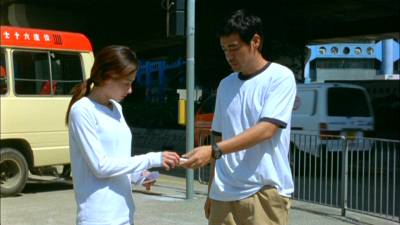
3. (tie) LOST IN TIME / THE WAY WE ARE
The two best “Hong Kong stories” films of the 2000s. One conventional, the other unconventional, both provide a fascinating glimpse into the day-to-day rhythms of Hong Kong life. They show that Hong Kong isn’t just about gangsters that struggle for power or cops chasing bad guys, it’s also about normal people just trying to get through the day the best they can. They show that Hong Kong isn’t teeming with playboys, golddiggers, gu wat jai (古或仔), psychopaths, super cops and mad detectives. Instead, it’s filled with normal, decent people like the minibus driver who helps out a overburdened woman burning the candle at both ends, the fruit lady from the supermarket who recognizes that her neighbour is lonely and the father who seems hard-hearted but, in actually, just can’t admit how much his daughter means to him.
The movies also contain two brilliant “show, don’t tell” sequences that are enshrined in my pantheon of all-time great HK movie scenes. In LOST IN TIME, there’s a sequence that shows Cecilia Cheung’s character going through her day balancing her job as a minibus driver and her role as the caregiver to her dead fiancée’s son. In THE WAY WE ARE, the compelling scene showing Chan Lai-Wun’s character cooking dinner is the embodiment of Bruce Lee’s notion of “emotional content”. Both are simple segments yet they express many complex ideas and sentiments.
2. INFERNAL AFFAIRS
If there was a “Hong Kong Division” for my “Most Valuable Film of the 2000s” blog post, the choice would clearly have been INFERNAL AFFAIRS. With HK$55 million in box office earnings, the movie currently ranks fifth in the list of top 10 highest grossing HK films of all-time. It spawned a prequel and a sequel and it acted as a defibrillator to the ailing heartbeat of Hong Kong cinema. From Kozo’s review of the film:
Cries of “Box Office Miracle” were trumpeted by Hong Kong’s so-called fourth estate, which advanced the opinion that Hong Kong Cinema was revived.
It put Alan Mak and Felix Chong on the map which led to movies like INITIAL D, MOONLIGHT IN TOKYO, CONFESSION OF PAIN, LADY COP AND PAPA CROOK and OVERHEARD.
Like CROUCHING TIGER HIDDEN DRAGON, my pick for “Most Valuable Film of the 2000s”, INFERNAL AFFAIRS also had influence internationally: A Hollywood remake, THE DEPARTED, finally earned Martin Scorsese a long-deserved Best Director Oscar.
1. (tie) IN THE MOOD FOR LOVE / LUST, CAUTION
Through exquisite film craftsmanship and outstanding acting, IN THE MOOD FOR LOVE and LUST, CAUTION are two movies that offer insightful looks into the nature of love and human connection. I made them co-number ones because a couple of things keep me from picking one over the other. First, LUST, CAUTION isn’t a “pure” Hong Kong film. Second, IN THE MOOD FOR LOVE feels like a 1990s movie to me. I actually did a double take when I looked up its release date and saw that it was September 29th, 2000. I could have sworn it was released in 1999. I probably feel this way because, back when I had my own site, I was translating articles about the production at least two years before it was released.
Moreover, as much as it pains my inner Vulcan to admit, 2046 sullied my affection for IN THE MOOD FOR LOVE. While they are two separate movies and I shouldn’t let one affect my view of the other, I just can’t like IN THE MOOD FOR LOVE as much after seeing 2046. What seemed exciting and stylistically cool in 2000 seemed tired and tedious just four short years later with the release of 2046.
Going off on a tangent, if you take anything from away from those films, it has to be to have a carpe diem attitude towards love and prospective mates. If you like somebody and there seems to be a good chance that they like you, take a shot and do something about it. Otherwise, you may end up whispering your regrets to a hole in the wall at Angkor Wat or, even worse, facing a firing squad.
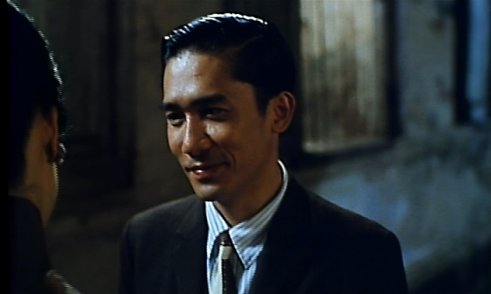
Going off on another tangent, there has been a decade long debate about what to name the 2000s. Some have suggested the “Naughts”, others have said it should be the Oughts. Then there are the “Zeroes”, the “Double Zeroes”, the “Os” and the “Twenty-Ohs”. If you take a look at my list of the decade’s best HK films, you’ll see that my cousin Tony stars in the top three movies. Call me biased but I think the decade should be called “The Leung Dynasty”.
Next time: The part I had the most fun writing: “Personal Favourites of the 2000s, uh, The Leung Dynasty.”
Image credits: Film Unlimited (Michael Wong), 69adget.com (Roxxy the Sex Robot), China Star Entertainment (Cecilia Cheung, Lau Ching-Wan), Jet Tone Productions (Tony Leung Chiu-Wai)
Posted in Cecilia Cheung Pak-Chi, Sexy Photos Gate, Simon Yam Tat-Wah, Jackie Chan, Gillian Chung Yan-Tung, Edison Chen Kwoon-Hei, Hong Kong Film Awards, Tony Leung Chiu-Wai, Ann Hui On-Wah, The Life and Opinion of the Webmaster Sanney | 4 Comments »
January 6th, 2010
Having spent part of my Christmas holidays watching THE FOUNDING OF A REPUBLIC, my heart is bursting with patriotic fervour. Compelled by the nationalist frenzy, I’ve decided to pay homage to “Father of the Nation” Sun Yat-Sen and his Three Principles of the 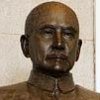 People by looking at the 2000s in Chinese movies from three different perspectives: the Most Valuable Film of the 2000s, the Best Films and Personal Favourites of the Double Zeros. People by looking at the 2000s in Chinese movies from three different perspectives: the Most Valuable Film of the 2000s, the Best Films and Personal Favourites of the Double Zeros.
Now that I’ve protected the Kozo Entertainment Group’s interests in the Mainland market (surely, with millions of sites to monitor, government censors can’t possibly have the time to read past the first paragraph), let’s start with perspective number one: The Most Valuable Film of the 2000s.
Based on the concept of the Most Valuable Player award in sports (those outside of North America probably know this award as “player of the match”), my pick for the Most Valuable Film of the 2000s wasn’t the most technically accomplished movie of the decade or the one that was most artfully rendered. It is, however, an outstanding film that had a huge impact on Chinese movies in this past decade: CROUCHING TIGER HIDDEN DRAGON.
Released in 2000, CROUCHING TIGER HIDDEN DRAGON is, to date, the most commercially successful and globally acclaimed Chinese film ever. At box offices worldwide, it earned over US$213.5 million. At various film awards across the globe, it won a staggering seventy-three awards and prizes. At the world’s most prominent film awards, the Academy Awards, it won in four categories after being nominated in ten.
Besides making an impact internationally, CROUCHING TIGER HIDDEN DRAGON had a huge impact on the course of the Chinese movie industry. After the Asian Economic Crisis of 1997, there wasn’t much interest in making lush, historical costume epics. In between 1997 and the release of CROUCHING TIGER HIDDEN DRAGON, the only costume epic of note was Chen Kaige’s THE EMPEROR AND THE ASSASSIN. Movies were mostly small budget affairs consisting of offerings like Milkyway Image’s crime films or Wong Jing’s exploitation flicks. The big money was reserved for commercially driven projects like the special effects extravaganza STORM RIDERS or the star-driven vehicle TOKYO RAIDERS. Big-budget costume epics were viewed as risky ventures with little or no chance of financial return. By making a profit of close to US$200 million (the film cost US$17 million to produce), CROUCHING TIGER HIDDEN DRAGON revived investment into big-budget costume epics and made the genre in vogue for major Chinese directors.
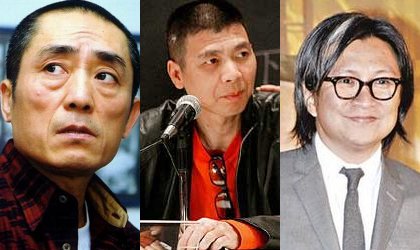
From left to right: Zhang Yimou, Feng Xiaogang, Peter Chan Ho-Sun
Take, for instance, Zhang Yimou, the man behind the opening ceremony for the Beijing Olympics. Zhang’s three films before CROUCHING TIGER HIDDEN DRAGON made its splash were the low-key affairs THE ROAD HOME, NOT ONE LESS and HAPPY TIMES. Zhang’s next three films: HERO, HOUSE OF FLYING DAGGERS and CURSE OF THE GOLDEN FLOWER.
Before CROUCHING TIGER HIDDEN DRAGON, Feng Xiaogang was known mostly for making successful Lunar New Films for the Mainland market. He stepped out of that genre by making THE BANQUET and THE ASSEMBLY.
Venturing into elaborate costume epics wasn’t limited to Mainland directors. Tsui Hark, who had been off making “Hollywood” films like KNOCK OFF and TIME AND TIDE, came back with THE LEGEND OF ZU and SEVEN SWORDS. Peter Chan Ho-Sun, famous for urban romances HE’S A WOMAN, SHE’S A MAN and COMRADES: ALMOST A LOVE STORY, threw his hat in the ring by directing THE WARLORDS and producing BODYGUARDS AND ASSASSINS. For his first Asian movie since HARD BOILED in 1992, John Woo — renown for his slick modern action movies - made RED CLIFF and RED CLIFF II.
With the emergence of China as an economic power in the 2000s, it is possible to legitimately argue that investment in big-budget costume epics would have happened eventually but it is impossible to argue against the idea that CROUCHING TIGER HIDDEN DRAGON was a catalyst in the choices that major Chinese filmmakers made in the past decade. There can be no doubt that the runaway success of CROUCHING TIGER HIDDEN DRAGON in late-2000/early-2001 set the table for Chinese filmmaking in the 2000s and is, undeniably, the Most Valuable Film of the decade.
Next time: The Best Films of the 2000s
BLOG POST EXTRA:
The impact of CROUCHING TIGER HIDDEN DRAGON wasn’t limited just to the Chinese movie industry, it had an effect on Hollywood as well. Paying, once again, tribute to Sun Yat-Sen and his Three Principles (still with me Mainland censors?), here are three ways the afterglow of the film manifested itself in the West:
1. It made Zhang Ziyi a commodity in Hollywood.
Without her breakthrough performance as Yu Jiao Long, there is no doubt that in the minds of most people over here in North America, she’d be mostly anonymous. Only people who had an interest in foreign films would possibly know of her and, even then, they may not remember her name. Most people would have thought of her in this way: “… that plucky country girl from that Zhang Yimou film - what was it called? THE ROAD HOME?”
Instead, CROUCHING TIGER HIDDEN DRAGON planted her firmly into the consciousness of movie fans. From 2001 to 2004, she probably had her pick of “compelling hot babe” roles in Hollywood action films. Her fame certainly helped land her the lead role in MEMOIRS OF A GEISHA and got her membership into the Academy of Motion Picture Arts and Sciences.
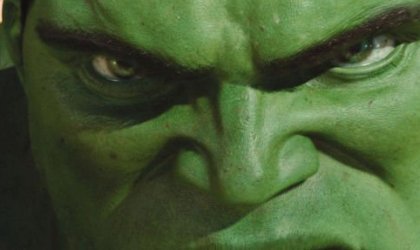
2. It deluded people into thinking that Ang Lee was the right person to direct HULK
In January 2001, at the height of the CROUCHING TIGER HIDDEN DRAGON phenomenon, Ang Lee was contacted by Universal Pictures/Marvel Studios to direct HULK1. While many viewed CROUCHING TIGER HIDDEN DRAGON as a straight-up wuxia action film, it was, in reality, a human drama film with wuxia touches. It wasn’t about the quest for a sacred sword or a hard-core tale about revenge, it was about a young girl finding her identity and the unfulfilled love between two warriors. CROUCHING TIGER HIDDEN DRAGON had more in common with past Ang Lee films like PUSHING HANDS, SENSE AND SENSIBILITY and EAT DRINK MAN WOMAN than classic wuxia movies like COME DRINK WITH ME or DRAGON GATE INN.
Predictably, HULK fizzled at the box office and Ang Lee returned to his human drama roots with the widely acclaimed BROKEBACK MOUNTAIN.
3. It helped the box office success of HERO in North America
Despite two years of dithering by Miramax, the company which owned North American distribution rights to HERO, the film opened on 2,031 screens and took in US$18 million on its opening weekend. The result set three milestones at the time2:
- Best end of August opening
- Second best opening for a foreign language film (behind THE PASSION OF THE CHRIST)
- Widest release for an Asian film
None of that happens without the momentum and goodwill created by CROUCHING TIGER HIDDEN DRAGON. It’s unfortunate that HERO squandered it all with that intellectually stimulating but emotionally disheartening ending. While HERO went on to make US$53 million in North America, subsequent releases did not open nearly as wide and, as a result, did not do as well. HOUSE OF FLYING DAGGERS took in US$11 million while KUNG FU HUSTLE earned US$18 million.
It’s hard to blame Zhang Yimou or HERO for the result, the ending was an artistic choice. It’s just unfortunate that the film was positioned as a mainstream movie even though it had an art film ending. People go to mainstream movies to be entertained, they don’t go to learn lessons or have intellectual constructs presented to them. AVATAR has made US$1 billion because, at its heart, it’s old-school entertainment. The good guys beat the bad guys and the guy gets the girl. If entertainment value was sacrificed for greater emphasis on environmental protection and the virtues of nature, AVATAR tanks.
The ending of HERO, which told viewers that unification and peace for the people are more important than personal vengeance, was fine as an intellectual argument but unsatisfying as a capper to a kick-ass martial arts movie. Let’s say OCEAN’S ELEVEN was released in 2010 in the current economic environment. Wouldn’t it leave a bad taste in viewers’ mouths if Danny Ocean and friends decided to turn themselves in and return their score after their elaborate scheme because they didn’t want to see the workers in the hotel and casino lose their jobs? I think that the ending of HERO soured many, many moviegoers on the genre and effectively killed any mainstream momentum that CROUCHING TIGER HIDDEN DRAGON fostered.
Image credits: Taiwan Tourism Bureau (Sun Yat-Sen statue), Star East Asia (Zhang Yimou), China Daily (Feng Xiaogang), Ming Pao (Peter Chan Ho-Sun), Universal Pictures (HULK)
FOOTNOTES:
1 “From ‘Tiger’ to U’s ‘Hulk’ for helmer”. Variety. January 12th, 2001.
2 “‘Hero’ Soars to Late August Record”. Box Office Mojo. August 29th, 2004.
Posted in Hong Kong in Hollywood, Zhang Yimou, The Life and Opinion of the Webmaster Sanney | Comments Off
|
|
|
| |
| |
|
|
|
|
|
|
|
|
|
|
|
|
|
|
|
|
|
|
|
|
|
|
|
|
|
|
|
|
|
|
|
|
|
|
|
|
|
|
|
|
|
|
|
|
|
|
|
|
|
|
|
| LoveHKFilm.com
Copyright © 2002-2025 Ross Chen |
|
|
![]()
 Performed originally by Josephine Siao Fong-Fong in the 1960 release NOBODY’S CHILD (苦兒流浪記; trans. TALES OF THE WANDERING ORPHAN), the song 《媽媽好》 (Mom Is Great) has become a lullaby/nursery rhyme in Chinese culture. It’s been covered by the likes of Teresa Teng and versions of the song have even been done in Japanese and Vietnamese. Since 1960, various incarnations of the song have appeared numerous times in many films and television projects. If you saw the 2004 film PAPA LOVES YOU, you may recall the song being played in the background when rambunctious schoolgirl Ellen (Charlene Choi) thinks about the sacrifices her father (Tony Leung Ka-Fai) has made for her.
Performed originally by Josephine Siao Fong-Fong in the 1960 release NOBODY’S CHILD (苦兒流浪記; trans. TALES OF THE WANDERING ORPHAN), the song 《媽媽好》 (Mom Is Great) has become a lullaby/nursery rhyme in Chinese culture. It’s been covered by the likes of Teresa Teng and versions of the song have even been done in Japanese and Vietnamese. Since 1960, various incarnations of the song have appeared numerous times in many films and television projects. If you saw the 2004 film PAPA LOVES YOU, you may recall the song being played in the background when rambunctious schoolgirl Ellen (Charlene Choi) thinks about the sacrifices her father (Tony Leung Ka-Fai) has made for her.![]()





 No one held it against Leslie Cheung for not revealing his sexual orientation with a “Yep I’m Gay” cover on Ming Pao Weekly. No one held it against Anita Mui for keeping her fight against cancer private until three months before her death.
No one held it against Leslie Cheung for not revealing his sexual orientation with a “Yep I’m Gay” cover on Ming Pao Weekly. No one held it against Anita Mui for keeping her fight against cancer private until three months before her death.







 People by looking at the 2000s in Chinese movies from three different perspectives: the Most Valuable Film of the 2000s, the Best Films and Personal Favourites of the Double Zeros.
People by looking at the 2000s in Chinese movies from three different perspectives: the Most Valuable Film of the 2000s, the Best Films and Personal Favourites of the Double Zeros.

